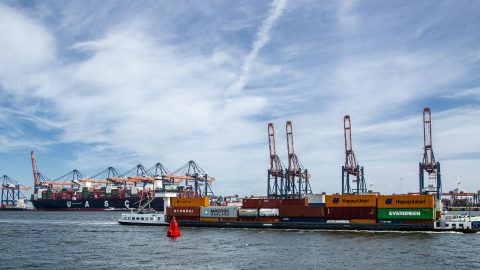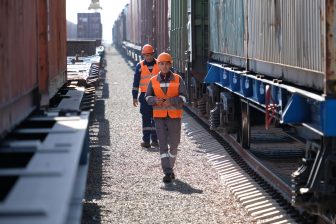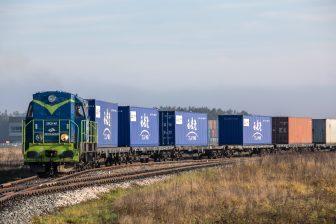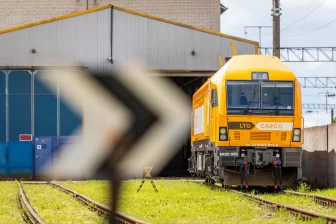
Port of Rotterdam: less bulk, more containers in first half 2018
The Port of Rotterdam witnessed a year-on-year decrease of throughput in the first half of 2018. It handled 232.8 million tonnes in the first six months ofyear, 2.2 per cent less than in the first six months of 2017. Container throughput, one of the strategic priorities of the Port Authority, rose by 5.9 per cent (in tonnes, 6.2 per cent in TEUs) by comparison with the first six months of 2017, including a new throughput record in May.
The market share of Rotterdam by comparison with the other ports in the Hamburg-Le Havre range increased from 30.9 per cent in the first quarter of 2017 to 31.2 per cent in the same period this year. However, the rise in container handling did not offset the fall in the throughput of wet and dry bulk.
Decline bulk goods
The decline in bulk goods was mainly seen in the throughput of coal, crude oil and mineral oil products such as fuel oil. Coal transshipment fell because of, among other things, the closure of coal-fired power plants, lower energy production by plants that were still in operation and a reduction in the flow of cokes for the steel industry. Striking growth segments were LNG and biomass, which more than doubled by comparison with throughput volumes in the same period last year.
The financial position of the Port Authority was stable in the first half of 2018. Revenue from port dues fell off slightly but rental and leasehold income from issued land increased slightly. The result before taxation remained virtually unchanged at 126.1 million Euros. Nevertheless, the net result was strongly influenced by a one-off gain as a result of the fiscal opening balance sheet, a consequence in turn of the Port Authority’s tax liability.
Prospects
The Port Authority called the prospects for the further growth of world trade uncertain. “Relations between large trading blocks in the world are currently strained. In addition, it is uncertain whether negotiations between the European Union and the United Kingdom will lead to a new trade agreement after Brexit”, it noted. “The fluctuations in volume in the Port of Rotterdam would not, for the time being, seem to be caused by recent trade restrictions, the impact of which will be felt only after some time. The Port of Rotterdam Authority is continuing to monitor developments closely.”





